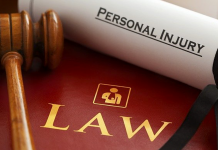A personal injury could occur for many reasons. You could, for example, get injured in a car accident, slip and fall at work, or use a defective product. If another person or a corporation caused the injury, it falls under a tort law called a personal injury claim. When you do decide to sue, you need to understand how the element of time will help or hinder you from receiving the compensation you deserve.
How to Find a Good Personal Injury Lawyer
It’s always a good idea to get a personal injury attorney from the city and state that you had the accident because they will have an intimate knowledge about the municipal and state laws.
Of course, it’s not always necessary to find a personal injury lawyer in this way, but sometimes, depending on the nature and extent of personal injury and the significance of the site of the accident, it can improve your chances of getting proper compensation.
What’s the Best Time to File Your Personal Injury Claim?
After an accident, you may not know the scope of your injuries, and it may take some time before you do. A medical diagnosis will only give you a statistic prognosis. A serious injury may have unexpected complications after medical treatment, or a minor injury could worsen in the following weeks or months.
Although you may not be able to assess how long an injury will take to heal or the effects it will have on your life, you should file your personal injury lawsuit started sooner rather than later.
There’s a good reason for haste: your lawsuit has a time limit. You want to be able to file early enough to give you the time to comply with this deadline. There’s no harm in acting quickly because it’s one thing to start a lawsuit and another to resolve it. Filing early will not obfuscate a more accurate understanding of the extent of your injuries.
When Should You Go to Court?
The time limit or deadline to file your case in court is a statute of limitations. State laws set a statute of limitations for every type of lawsuit.
Even if you’re uncertain whether you want to sue and just want to ask for an insurance claim right now, keep the statute of limitations in mind.
How Much of a Settlement Should You Accept?
After a personal injury, you might not have a good idea about the extent of your injuries and how much compensation you need. You can’t ask for maximum compensation until you’ve reached an MMI, which means “maximum medical improvement.”
So, don’t just accept the first settlement offered by the defendant. Wait until you know you’ve recovered as much as possible.
Your attorney will need the answer to two questions before assigning a value to damages:
First, what future medical care will you need?
Second, what financial impact will you continue to struggle with in the future?
So, to put it in a nutshell–you and your attorney will need to get a clear picture of the past and future impact of your injuries and damages before agreeing to a settlement.
In conclusion, time is an important element to consider when suing. Although you might want to postpone taking any action until you feel better, it’s a good idea to talk to a personal injury lawyer about your accident as soon as possible. In fact, don’t make any important decisions until you’ve talked to one.








